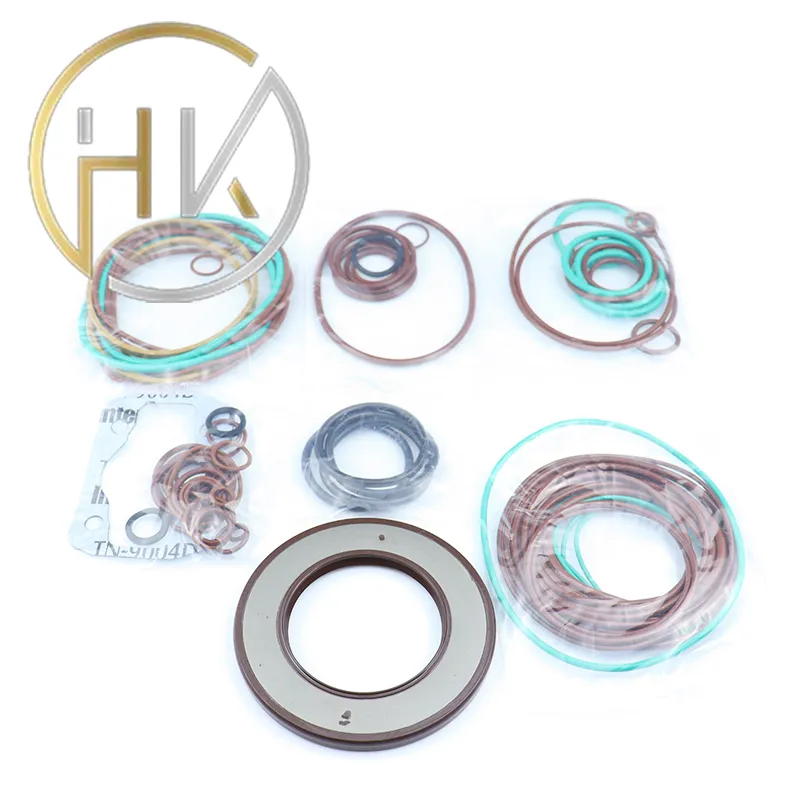Ное . 16, 2024 01:05 Back to list
high temperature oil seal
The Significance of High-Temperature Oil Seals in Modern Machinery
In the intricate world of machinery and mechanical systems, the role of oil seals is often overlooked, yet it is crucial for maintaining operational efficiency and longevity. Among the various types of oil seals, high-temperature oil seals hold particular significance due to their ability to withstand extreme conditions and ensure the reliability of equipment in demanding environments. This article will explore the importance, applications, and design considerations of high-temperature oil seals.
Understanding High-Temperature Oil Seals
High-temperature oil seals are specially designed components that prevent the leakage of lubricants while keeping contaminants out of machinery. These seals are typically made from advanced materials that can endure elevated temperatures without compromising their structural integrity. Common materials include fluoroelastomers (FKM), silicone, and specially formulated rubber compounds, all of which exhibit excellent thermal stability and resistance to various oils and chemicals.
Applications of High-Temperature Oil Seals
The applications of high-temperature oil seals span multiple industries, including automotive, aerospace, manufacturing, and energy. In the automotive sector, for example, these seals are integral to engine assemblies and drivetrain components where high heat is generated. In aerospace applications, high-temperature oil seals are used in engines and landing gear systems, where they ensure safety and performance under extreme conditions.
Manufacturing processes, particularly in the chemical and oil industries, also rely on high-temperature oil seals to maintain the integrity of machinery operating at elevated temperatures. Such environments can lead to rapid deterioration of standard seals, highlighting the need for robust and reliable high-temperature solutions. Additionally, in the energy sector, particularly in renewable energy systems like wind turbines, these seals are essential for protecting the internal components from thermal degradation and ensuring uninterrupted power generation.
high temperature oil seal

Design Considerations for High-Temperature Oil Seals
When designing high-temperature oil seals, engineers must consider various factors to ensure performance and durability. One of the primary considerations is the operating temperature range. High-temperature oil seals are typically rated for temperatures between 200°C to 300°C (392°F to 572°F), but some advanced materials can withstand even higher temperatures.
Another critical factor is the pressure within the system. Seals must be designed to handle not only high temperatures but also the pressure levels they will encounter during operation. This dual challenge necessitates careful selection of materials and a focus on the seal's geometry to enhance performance.
Furthermore, compatibility with different lubricants and fluids is paramount. The chemical properties of the lubricants can significantly impact the aging and degradation of the seal material. Therefore, choosing high-temperature oil seals that are compatible with the specific oils and other substances used in the machinery is crucial for longevity.
Conclusion
High-temperature oil seals play an indispensable role in enhancing the performance and reliability of modern machinery across various industries. Their ability to withstand extreme temperatures while effectively sealing joints and preventing leaks is critical for the efficiency and safety of equipment. As technology continues to advance and machinery operates under more demanding conditions, the importance of high-temperature oil seals will only continue to grow.
In conclusion, investing in high-quality high-temperature oil seals is essential for any operation that relies on mechanical systems. By ensuring that the proper seals are utilized, manufacturers can maximize equipment lifespan, reduce maintenance costs, and ultimately improve operational efficiency. Understanding and implementing the right solutions in seal technology is vital to navigating the complexities of modern mechanical design and engineering.
-
The Trans-formative Journey of Wheel Hub Oil Seals
NewsJun.06,2025
-
Graphene-Enhanced Oil Seals: Revolutionizing High-Pressure Oil Sealing
NewsJun.06,2025
-
Future of Hydraulic Sealing: Advanced Intelligent TCN Oil Seals
NewsJun.06,2025
-
Don’t Let a Broken TCV Oil Seal Ruin Your Day
NewsJun.06,2025
-
Bio-Inspired Dust Seals for Better Sealing Performance
NewsJun.06,2025
-
Biodegradable and Sustainable Hydraulic Seal Materials
NewsJun.06,2025
-
Top Oil Seal Solutions for Your Industrial Needs
NewsMay.22,2025
Products categories
















